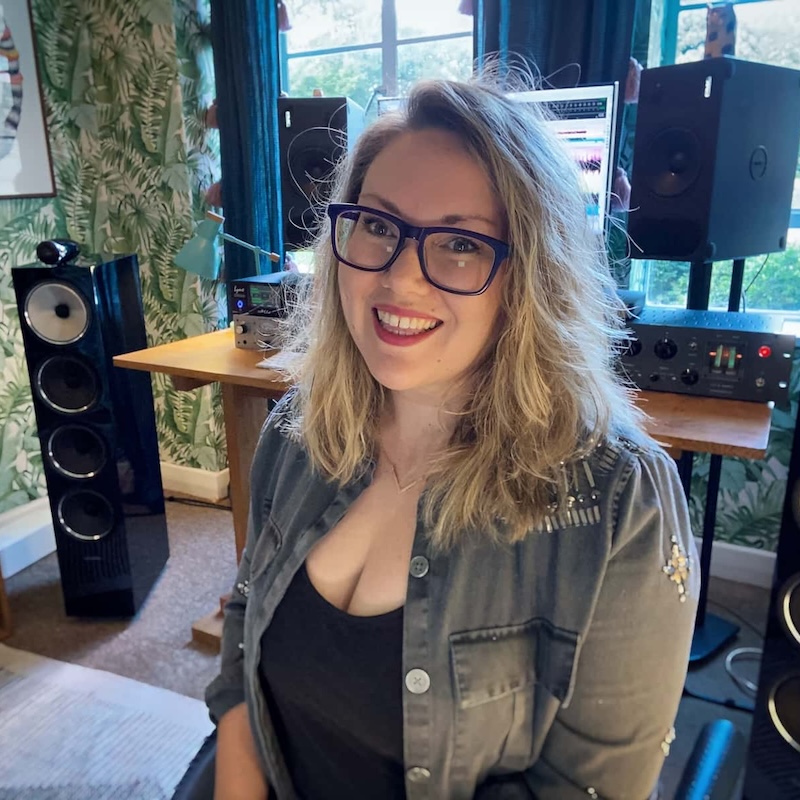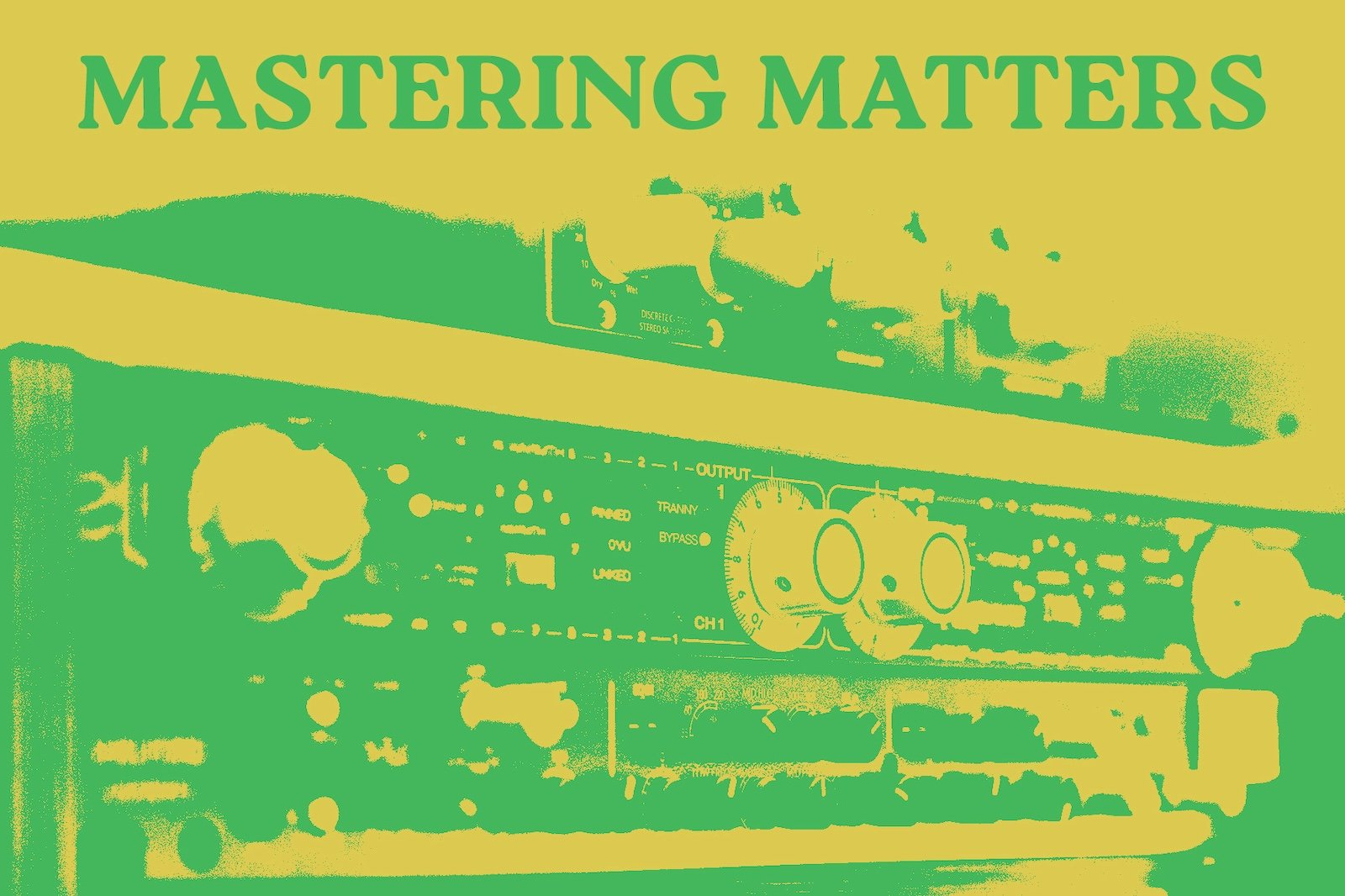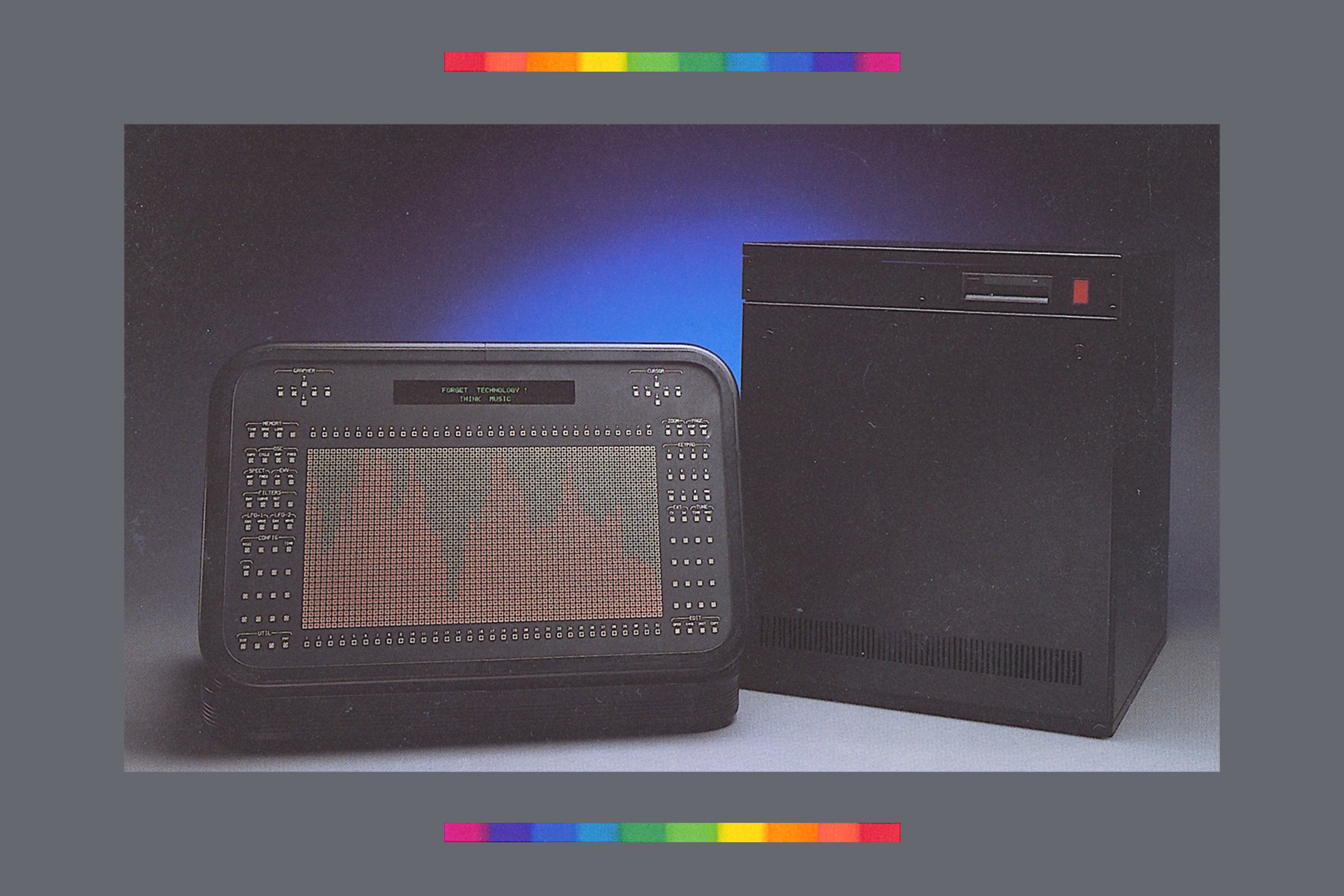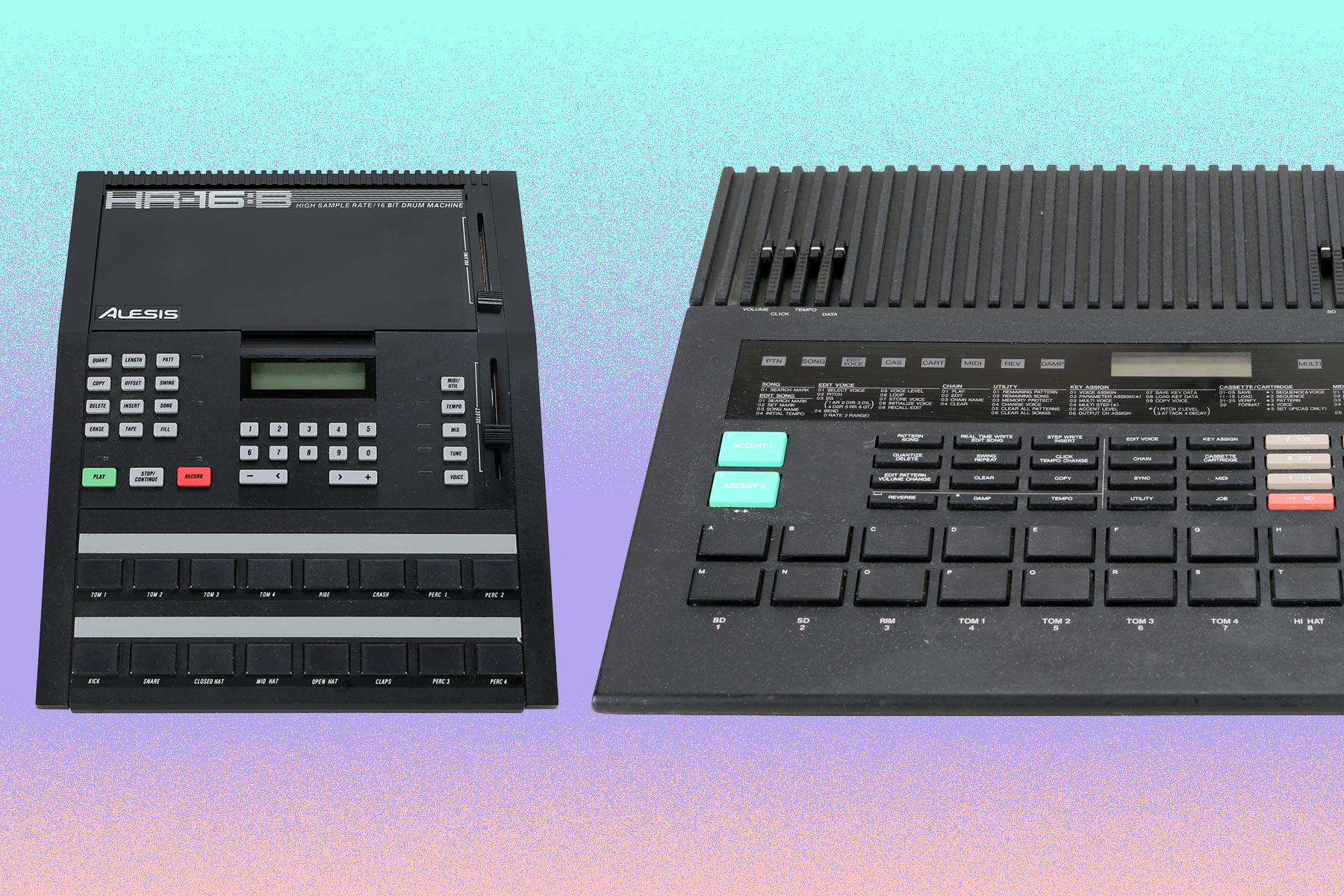So you’ve created a musical masterpiece and you know you want to get it mastered, but how do you find a suitable mastering engineer? It can seem daunting if you’ve not gone through the process before. Generally speaking, a mastering engineer can either be someone your producers guide you in choosing, someone that your mix engineer thinks is a good fit with their mix, or someone whose work you admire, and who has worked with artists who are similar to you. If you’ve spent some time reading the liner notes of your favorite albums, you’ll likely be able to find out who mastered each of them. Keep in mind the stylistic qualities that may be different or similar between your own music and that of some of the artists that you admire.
Mix engineers often have a good idea of who’s going to be a good fit for the music since the two processes of post production complement one another. Remember, if a mix isn't right, a mastering engineer may ask you to have things adjusted before continuing the post production process. (This is also why its a good idea to have your music professionally mixed, where possible, if you are a self recording/producing artist). Pairing mix and mastering engineers' work together is a bit like pairing wine and cheese, and knowing who will help the mix translate its best is something can take a little experience and a tasteful ear.
That being said, we asked some of the top mastering engineers around the world, in this part two on mastering, what their thoughts are on how to choose a mastering engineer—and some of the things you can expect from working with one. Going in with an informed understanding of what you can expect will also help you prepare for your mastering experience, and make sure that you’ve found the right person to work with.
If you didn't catch our first article covering the basics of what mastering is, and how it works, check it out here: Mastering Matters: What is Mastering?
What Should You Expect?
So, what can you expect when you are working with a mastering engineer? Billy Bowers, a mastering engineer based in the US, commented that,“You should expect that the finished product sounds better than what you sent. It might be a little, or it might be amazing, but it shouldn’t sound worse. You also can’t expect amazing if your mixes aren’t amazing. You might get it, but you can’t expect it.”
Stefan Heger also suggested that, “You can expect feedback, a timeframe or schedule, explanation on service provided, explanation on formats available.” Keep this in mind when you first approach your mastering engineer and be sure to ask about things like formats and time frames for different kinds of releases. For example, if you’re planning on releasing your music on vinyl, you’ll need a different master than the digital release. This raises the important aspect of knowing what types of conversations to have with your mastering engineer before working with them. Katie Tavini, a mastering engineer at Weird Jungle, based in the UK, shared that:
“Before working with a mastering engineer, it’s really useful to know your timescale (so we can work to any deadlines), how many songs you’d like mastering, track names & running order, formats that you’ll require for your release (for example, digital, Apple Digital Masters, vinyl sides, DDP etc), whether you need any alternative mixes mastering (instrumentals, radio edits). I work with a brilliant manager, Carla Harding at Weird Jungle, who collects all this information so that I can concentrate on the actual mastering part. What’s also really useful is some reference tracks so we know what has inspired you—they don’t need to sound anything like your music, but it’s always nice to have a listen to music you were vibing off when you were making your music!”
Natalie Bibby, of Metropolis Mastering in London also noted, “The term 'vinyl mastering' is thrown around a lot today, but it really should only be done by the cutting engineer, that is; the person who is cutting your album onto lacquer. This is a separate and different process and session from the mastering one. In my case, I do both mastering and cutting; cutting is one arm of my mastering role, so it is common for me to do both for an album—but it will still be a separate process and session.”
Stefan Heger also advised, “…there are many engineers available, so spend the time to ask any question and see if you have common ground. This is the biggest advantage over AI or automated mastering services, and it does make a difference in the results.”
What Do You Send To a Mastering Engineer?
Knowing what files to send is also a big question that might come up. Everyone has different ways of working, but in general, it's good to know what types of files, preparation of formats, and headroom might be encouraged.
 Mike Hillier of Metropolis Mastering in London
Mike Hillier of Metropolis Mastering in London
Mike Hillier of Metropolis Mastering in London advised that, “If you're really happy with your mix, print it at 24- or 32-bit, and the native sample-rate of the session, with no further changes. The headroom debate is long and boring, and it all boils down to 'don't clip your mix print.' Beyond that it doesn't matter at all. If it's too quiet, I can turn it up. If it's too loud (but not clipped), I can turn it down. As for two-buss processing, my rule of thumb is that; if you have mixed into the processing from the start, leave it on. If you added it at the end as a pseudo mastering chain, print a version without it too. The only processor I would ask that you always remove is limiting.”
Katie Tavini also noted, “I expect from the artist / producer / mix engineer: well-labelled stereo WAV files at the sample rate they were mixed at. There’s no need for 'X' amount of headroom, just make sure your audio isn’t clipping. If you’ve mixed into some master bus processing, please leave these on the mix, as removing them will change the way the layers of your song interact with each other.”
Do Mastering Engineers Offer Revisions?
Once you get your masters back, you may also wonder if mastering engineers offer revisions. In most cases the answer is yes. Here’s what some of the mastering engineers had to say on the subject.
Billy Bowers added that his philosophy with revisions is, “I usually just work until everyone is happy, but I haven’t really had anyone get too carried away with that where I’ve had to draw a line.” Katie Tavini also pointed out that, “Revisions are really common, and we’re never going to be offended by any requests for changes. We appreciate you trusting us with your art, and we want you to be completely happy with the way your release sounds.”
Finally, Mike Hillier commented that, “I can't speak for everyone. But I always offer one free revision. After that we state that further revisions are chargeable. But usually, if it's just something quick and easy, it's easier for us to just do the revision without charging than it is not to. And we're always happier knowing the client is happy with the final version. But obviously there are times when having the option of charging helps to keep everyone grounded.”
So really the answer is yes, you should have the option for revisions; but be respectful of everyone’s time and talents. Building a relationship with your mastering engineer can go long way in them getting to understand the creative vision of the project, and your goals for your release.
What Do You Get Back From a Mastering Engineer?
So what should you expect to get back from a mastering engineer, and what happens next? It depends on your release format, and any other plans for the release.
 Katie Tavini of the Weird Jungle mastering collective
Katie Tavini of the Weird Jungle mastering collective
Katie Tavini states that, “You get back from a mastering engineer any formats and versions that you’ve requested in well-organized folders so that everything is as easy to access as possible. I know that releasing music can be so stressful, so having everything in one master folder will prevent you from having to search for ages looking for that specific file. I also pop a PDF in each master folder explaining exactly what all the file types are—sometimes this can be a bit confusing, especially with digital distribution platforms requesting different audio file specs. Once you’ve received your final masters, it’s best to back these up in two separate places, as hard drives can easily fail or be misplaced. Most mastering engineers don’t run an archiving service, but will typically hold on to your masters for as long as possible (although please don’t rely on this!)”
Another important thing to note was mentioned by Mike Hillier, regarding sample rates and metadata; he mentioned that, “This is going to come down to what you have agreed upon in advance. At the very least you should be getting a 16-bit, 44.1kHz WAV file returned, but often you will get 24-bit files at whatever sample rate you provided the audio in the first place. Don't waste your time asking for higher sample rates, if your source audio isn't at that sample rate to begin with, unless you have a VERY good reason for asking—such as needing to sync to broadcast. If you have ISRC codes, send them over with the audio and the mastering engineer will embed them into the files for you. And if you want metadata embedding, make sure to send everything over double checked for spelling.”
If you’re going to be working with vinyl, there might be some different things to consider, and in this case Natalie Bibby said, “We can also cut your album onto lacquer, sometimes people call this 'vinyl mastering.' Essentially, we take your mastered album and adjust it so it can be cut onto lacquer, so that it sounds the best it can but also is playable (e.g. not too much bass so the needle playing it doesn't skip). After we cut this lacquer, we ship it to a pressing plant where they will use this and duplicate from it to make up vinyl of your release.”
Essentially, depending on how you are releasing your music will dictate the types of materials you will receive back, and what kinds of meta data you may need to send over.
Building Relationships
There are a lot of other considerations with your mastering engineer choice in mind. Think about developing a relationship with them, because this is just as crucial step as any in your post production and release process. Stefan Heger mentioned an important resource for finding a mastering engineer: “www.masteringcredits.com is a source for anybody interested in mastering engineers and their credits. The directory is free and can be joined by any mastering engineer too.”
Mike Hillier recommends that you, “Keep the lines of communication open, even after the process. Let us know when your track has been released. If it gets picked up by radio or if you go on tour. We got into this industry because we love music, and we love talking about great music we've worked on.” Just like any other time spent in the studio, this is an opportunity to expand your production team, your network, and learn—and have fun!
Natalie Bibby pointed out that it's worth considering, “choosing an engineer you can attend a mastering session with in person, as not only can this become more collaborative for you, but you really get to experience the value of our rooms and expertise in person. It's also an exciting and informative experience just to hear your music on our big speakers in a space that is as acoustically flat as you can get. I think of attended sessions as being quite magical an experience for artists. A lot of independents enjoy attending for the additional gain of being able to take videos and photos of the session for their social media content as well.”
With all these words of wisdom, go forth, make music, get it mastered, and be inspired!








